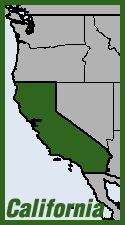 Four kayakers attempting to smuggle nearly 300 pounds of cannabis into the US were arrested at sea on the morning of Nov. 22, federal authorities announced. US Customs and Border Patrol agents saw four men in separate kayaks "navigating the ocean" at about 4 AM, agency spokesman Ralph DeSio told the press. The men, all Mexican nationals, had entered US waters off Imperial Beach when authorities dispatched a helicopter and boat to intercept them, DeSio said. The men jumped out and tried to swim for it, but the helicopter used a spotlight to track them so the boat could find them in the dark waters. All the men were taken into custody and turned over to the San Diego Maritime Task Force. Agents found 99 bundles of cannabis in the kayaks, estimated to be worth $178,200.
Four kayakers attempting to smuggle nearly 300 pounds of cannabis into the US were arrested at sea on the morning of Nov. 22, federal authorities announced. US Customs and Border Patrol agents saw four men in separate kayaks "navigating the ocean" at about 4 AM, agency spokesman Ralph DeSio told the press. The men, all Mexican nationals, had entered US waters off Imperial Beach when authorities dispatched a helicopter and boat to intercept them, DeSio said. The men jumped out and tried to swim for it, but the helicopter used a spotlight to track them so the boat could find them in the dark waters. All the men were taken into custody and turned over to the San Diego Maritime Task Force. Agents found 99 bundles of cannabis in the kayaks, estimated to be worth $178,200.

 British firm
British firm 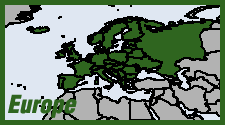 OK, no pun intended, but this one doesn't pass the smell test.
OK, no pun intended, but this one doesn't pass the smell test.  A new riot between rival gangs in the dangerously overcrowded prison at Altamira, in the Mexican border state Tamaulipas, left seven inmates dead Oct. 26. State authorities said the prisoners were killed with makeshift knives in a fight in one cellblock at the facility, officially known as the Execution and Sanction Center (CEDES). Thirty-one inmates died in a
A new riot between rival gangs in the dangerously overcrowded prison at Altamira, in the Mexican border state Tamaulipas, left seven inmates dead Oct. 26. State authorities said the prisoners were killed with makeshift knives in a fight in one cellblock at the facility, officially known as the Execution and Sanction Center (CEDES). Thirty-one inmates died in a 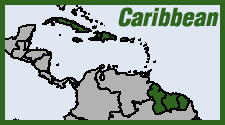 Jamaica's Justice Minister Mark Golding says his office is preparing an initiative to legalize cannabis in the island nation—pointing to the successful state initiatives in the US, traditionally the chief opponent of such efforts by Caribbean countries. "The Ministry of Justice is far advanced in developing a Cabinet submission with a view to reforming the laws relating to ganja," Golding told Jamaica's
Jamaica's Justice Minister Mark Golding says his office is preparing an initiative to legalize cannabis in the island nation—pointing to the successful state initiatives in the US, traditionally the chief opponent of such efforts by Caribbean countries. "The Ministry of Justice is far advanced in developing a Cabinet submission with a view to reforming the laws relating to ganja," Golding told Jamaica's 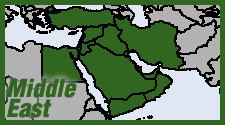 Israel has the
Israel has the 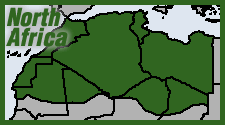 Algeria seized more than 127 metric tons of hashish coming in from Morocco in the first eight months of 2013, authorities announced Oct. 2. Some 12,500 suspected traffickers were arrested and large quantities of various psychotropic pills were also confiscated in raids. (These two trades seem to together in Middle East networks.) Algeria has officially closed its border with the conservative kingdom to the west since 1994, citing political tensions and the flow of contraband. But the trade obviously flourishes, with subsidized Algerian fuel smuggled into Morocco in a dope-for-oil deal. In 2012, more than 157 tons of cannabis were seized in Algeria, compared with 53 in 2011. The explosion has prompted Algiers to beef up security on its western frontier. (Lebanon
Algeria seized more than 127 metric tons of hashish coming in from Morocco in the first eight months of 2013, authorities announced Oct. 2. Some 12,500 suspected traffickers were arrested and large quantities of various psychotropic pills were also confiscated in raids. (These two trades seem to together in Middle East networks.) Algeria has officially closed its border with the conservative kingdom to the west since 1994, citing political tensions and the flow of contraband. But the trade obviously flourishes, with subsidized Algerian fuel smuggled into Morocco in a dope-for-oil deal. In 2012, more than 157 tons of cannabis were seized in Algeria, compared with 53 in 2011. The explosion has prompted Algiers to beef up security on its western frontier. (Lebanon 





Recent comments
6 days 14 hours ago
6 days 21 hours ago
4 weeks 14 hours ago
4 weeks 6 days ago
9 weeks 4 hours ago
12 weeks 5 days ago
16 weeks 5 days ago
17 weeks 4 days ago
27 weeks 4 days ago
31 weeks 4 days ago